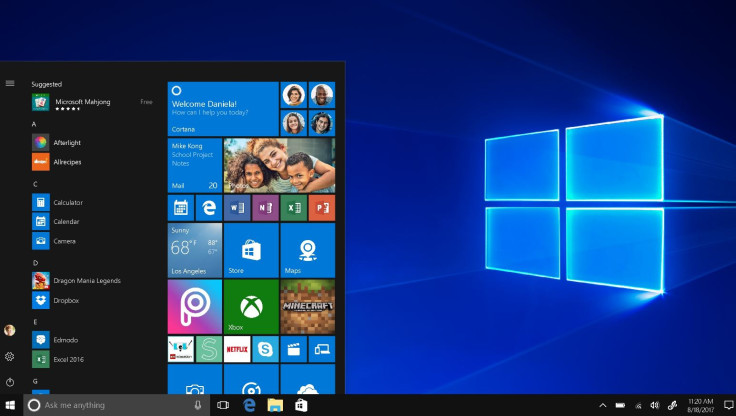Microsoft Windows to be replaced by Maya OS amid rising cyber threats
Maya OS will be installed on all Internet-connected computers used by India's Ministry of Defence.

Maya OS will reportedly replace Microsoft Windows as the operating system on India's Defence Ministry's computers citing rising cyber threats. In other words, the country's Ministry of Defence will oust Microsoft's widely popular proprietary OS (operating system) in favour of a Linux-based OS.
It is worth noting that Maya OS is based on the popular Linux distribution Ubuntu. The word on the street is that government agencies took six months to develop the OS, which is equipped with built-in malware protection for PCs connected to the internet.
#India Ministry of Defence has decided to replace Microsoft OS with immediate effect. The Indian Army, Navy, and Air Force are in the process of approving the use of Ubuntu-based Maya OS which could be less prone to cyberattacks.@Microsoft @techhq #cybersecurity #infosec… pic.twitter.com/v3r4yHZngl
— 🄲🅈🄱🄴🅁 🄰🅂🄸🄰 (@Cyber_Asia_) August 14, 2023
According to a report by the Indian news and media website The Hindu, the Ministry of Defence has already started replacing Internet-connected computers with a new OS dubbed Maya OS. The newfangled operating system is reportedly based on the free and open-source Linux distribution Ubuntu.
Notably, the British firm Canonical maintains Ubuntu. Interestingly, the Maya OS interface doesn't bear a resemblance to traditional Linux-based distros. Instead, it resembles Microsoft Windows, which will probably facilitate the transition process, according to the folks at Gadgets 360.
Is Maya OS better than Microsoft Windows OS?
The report, which cites a government official, further claims Maya OS was set to boot all Ministry of Defence computers connected to the Internet before August 15 (India's Independence Day). However, the OS hasn't yet been installed on PCs operated by the three defence services.
While the Army and Air Force are still evaluating, the Navy has cleared the OS. Apparently, the Windows operating system will be replaced due to the growing number of cases of ransomware and malware attacks in India.
Stopping rising cyber and malware attacks
Microsoft has been sparing no effort in a bid to improve its Windows OS lately. Aside from this, it looks like the American tech behemoth has deviated its focus on being at the forefront of the AI space. In line with this, the company recently replaced its virtual assistant Cortana in Windows 11 with AI (artificial intelligence).
According to a Fox News report, Microsoft Windows is more vulnerable to Malware since it is the most common OS on devices worldwide. However, traditional Linux-based OS like Ubuntu isn't inherently more secure than Windows, ChromeOS, or macOS.
Yet, Maya OS adopts a "Chakravyuh" system that can efficiently detect malware and protect the device. Moreover, a considerable number of Linux-based operating systems offer limited sandboxing compared to other operating systems.
Maya OS 🔥🔥 that will replace Windows on Indian Defence Ministry computers🇮🇳#MayaOS #IndianDefenceministry pic.twitter.com/Lmq9TLoO67
— 🪷Kodhai🪷 (@podhigaimagal) August 11, 2023
To those unaware, sandboxing alludes to the process of limiting app access, and restricting unauthorised system and file access. Some distributions like Qubes OS, on the other hand, deliver "reasonably secure" support for secure isolation and compartmentalisation of software on the PC.
Maya OS is not the first locally developed OS. Previously tested by the Army, BOSS ( Bharat Operating System Solutions) is an existing Linux-based OS that has been in development for more than 16 years. C-DAC (Centre for Development of Advanced Computing) developed this native OS in collaboration with NRCFOSS (National Resource Centre for Free and Open Source Software).
Carrying the codename Urja, the latest version, BOSS 9.0 was released on February 19, 2021. According to data shared by analytics firm StatCounter, Linux had a 3 per cent market share in June, after a period of 30 years.
However, Microsoft's popular Windows has the highest share, followed by Apple's equally popular macOS. A study suggests the cost of living crisis is probably the reason for the rise in cybercrimes. The report further claims that businesses in the UK lost over £2.1 billion to fraud in 2022.
Understandably, both Apple and Microsoft are sparing no effort in a bid to protect users from cyberattacks. For instance, both companies are currently running bug bounty programs for responsible disclosure of security flaws. However, that's not enough.
Government agencies will also have to commit adequate funds and manpower resources consistently to continue making MayaOS a secure OS that can protect users from malware and ransomware groups.
© Copyright IBTimes 2025. All rights reserved.






















